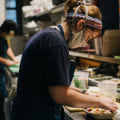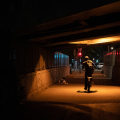Are you looking to open a restaurant in New York City? If so, you need to be aware of the special zoning laws that apply to restaurants operating in the city. In this comprehensive guide, we'll explain the Group 6 zoning code, the process of obtaining a home-cooked food license, and other regulations that you need to be aware of. The restaurants in New York City belong to Group 6 of the New York City Zoning Code. This means that if you want to convert any space that is not in Use Group 6, you will need to obtain a new certificate of occupancy and submit a type 1 modification.
Additionally, the restaurant must be in Occupancy Group M for Commercial or B for Building Code Businesses. People often ask us if it's worth going through the process and cost of obtaining a home-cooked food license in New York. The answer is yes – if you want to sell products that don't conform to the homemade food law, you will need to obtain a New York food processor license, also known as a New York State food license. Otherwise, you could face hefty fines, prison terms, and even lose the ability to do business on your own in New York.
This means that the location of your restaurant may be limited by where you can actually have a restaurant in your city. In addition to New York State agricultural market guidelines, individual farmers markets may require food operators to have a license from the New York State Department of Agriculture and Markets. If you receive a no-objection letter for your restaurant, you won't need a new certificate of occupancy. The Office of Community Environmental Health and Food Protection maintains Part 14 of the New York State Health Code, which contains regulations for several food service establishments in New York State.
A New York State home-based business that is subject to home-cooked food laws does not need to apply for a food service establishment permit in New York State. If you want to convert a commercial space into a restaurant without obtaining a new certificate of occupancy, you will need to obtain a no-objection letter. There are many rules and regulations that prevent people from obtaining a permit to sell food from home or from maintaining their New York State food license. It's important to note that while there are many dry communities in New York State, there are currently no dry districts in New York City.
Those who just want to sell at a farmer's market may even find that New York State's temporary food permit best serves its purpose. Jorge Fontan earned 3 degrees in the study of architecture, including two degrees from the City University of New York and a master's degree in Advanced Architectural Design from Columbia University. While New York isn't the most lenient or the strictest state when it comes to obtaining a permit to sell food from home, interested people find it quite easy to get started. In conclusion, if you're looking to open a restaurant in New York City, it's essential that you understand all of the zoning laws and regulations that apply.
You'll need to obtain a new certificate of occupancy and submit a type 1 modification if you want to convert any space that is not in Use Group 6.Additionally, you'll need to obtain a no-objection letter if you want to convert a commercial space into a restaurant without obtaining a new certificate of occupancy. Finally, make sure you understand all of the rules and regulations regarding obtaining permits and maintaining your New York State food license.







Leave Message